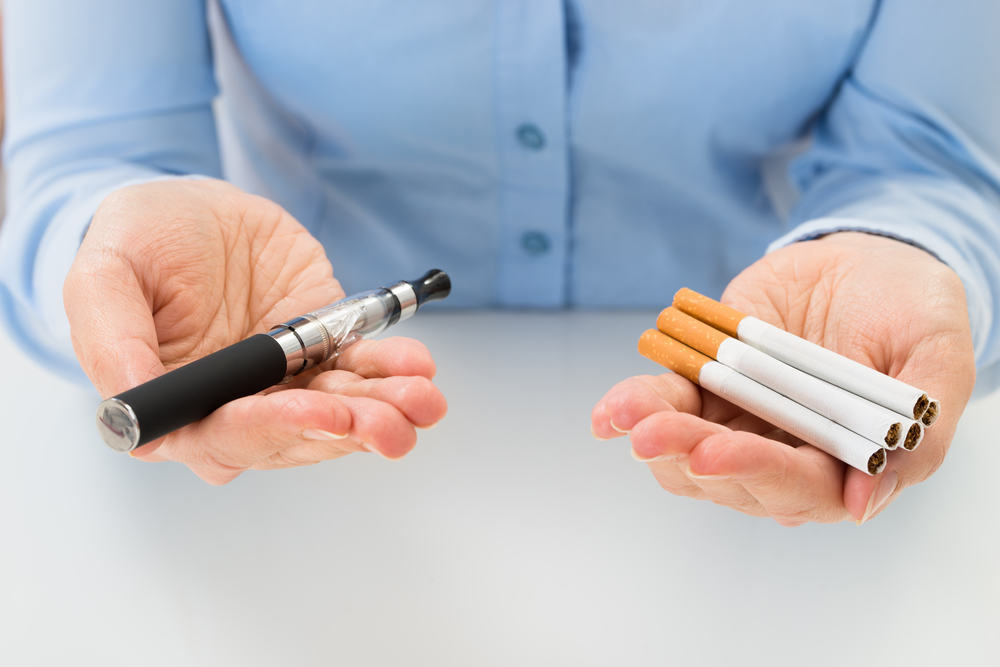Contents:
Medical Video: Blackout Tattoos: Really a Good Idea or a Big Problem?
For those of you fans of tattoos, you may be familiar with the latest trends on the rise in social media later: Blackout tattoos.
Unlike a number of previous trends, tattoo blackouts cover a large part - to almost the whole - of the body, starting with the arms, chest, legs, stomach, and back with jet black ink. Some are done to cover old tattoos; others, indeed, are specifically done for aesthetic reasons.
However, is it safe? Here are a number of risks that might be caused by a tattoo in the form of a solid black in your body.
1.. Asking for dark black will make it difficult for doctors to diagnose the risk of skin cancer
Marie Leger, M.D., PhD, assistant professor of dermatology at New York University, as quoted from SELF, argues that there is a possibility that tattoo blackouts can affect the synthesis of vitamin D in the body, namely your body's ability to absorb and break down vitamin D from sun exposure. In addition, the highly pigmented black ink will also make it difficult for doctors to diagnose skin cancer in these parts of the body. Fifty percent of skin cancer (melanoma) originates from a pre-existing body mole.
2. Some black ink is suspected of being a cancer-causing agent
The type of ink used plays a big role in determining the risks surrounding the trend of tattoo blackouts.
Black tattoos are usually made of carbon-based inks. However, it is possible that the black ink also contains polycyclic aromatic hydrocarbons and benzo (a) pyrene (BaP), which are suspected of being cancer-causing agents. In addition, some tattoo inks can also contain harmful ingredients, such as cobalt and chromate tin, which should not be present in your body. That is, the higher the volume of ink in your body, the higher your chances of suffering the negative consequences of this harmful substance.
3. Tattoos can interfere with MRI scans
Blackout tattoos can also disrupt the MRI scan process. Black ink contains iron oxide, this will make it difficult for an MRI scanner to work and produce accurate scanning. The area with jet-black tattooed skin may also swell or feel hot like burning when scanned by MRI.
Reporting from Women 's Health Magazine, research also shows that the body metabolizes a small portion of the tattoo pigment, so that it can dissolve in water and be carried into the lymph nodes, which can cause tissue hardening. Hardening of this tissue will easily be thought of as a cancerous tumor.
4. The process of healing tattoos may take longer
Like all tattoos, large tattoos like this have the risk of infection from needles or from the ink of the tattoo itself, even though black ink has a lower risk of allergies than other colors, for example yellow ink which if exposed by infrared radiation will form compounds cancer.
"The recovery process can also be longer than other colored tattoos, which will make the formation of scar tissue more likely," said Eric Schweiger, founder of the Schweiger Dermatology Group in New York, reported by Fox News. In addition, according to Schweiger, the uneven coloring process is more common in tattoo blackouts than other tattoo processes in general.
There are also concerns about what to do if you get a blackout tattoo and decide to delete it. Although it is very possible to remove black tattoos, the process of removing tattoos will take a longer and more painful time due to the intense density of color pigments in the skin.
However, tattoos are considered to increase the immune system
According to research from the University of Alabama, getting some tattoos can strengthen your immune system's response and make you better able to fight common infections, while getting a tattoo for the first time can at least make you more susceptible to flu, at least for a short period of time. Reporting from Medical Daily, Christopher Lynn, associate professor of anthropology involved in this study likens the process of accepting tattoos as exercise when your body is not fit: The first session will be very painful, but if it continues, your body will get stronger and the pain will fade.
Lynn continued, after being forged without stopping by stress, your body will respond in such a way before returning to a balanced state as usual. However, if you continue to put your body under continuous stress, instead of returning to the starting point, the body will adjust its turning point and move to a higher resistance threshold.
Lynn's research found that immunoglobulin A levels decreased far enough in participants who got the first tattoo, defeated by the release of cortisol released in response to stress. Decreased immunoglobulin A looks much less in participants who already have a lot of tattoos before and get new tattoos.
The body sends immunological agents to the location of the new tattoo, just in case against infection. The body of the participant who had received the tattoo process several times seemed to increase the trigger threshold of the response. In short, their bodies have adapted and are accustomed to these pressures over time.
However, before you rush to the nearest tattoo place to get a blackout tattoo to strengthen your immune system, you should consider all kinds of risks, and don't go tattooing when you're sick - cortisol response will actually disrupt your recovery process.
READ ALSO:
- The danger of parabens in body care products
- Asians are said to be more youthful than Caucasians. What is the reason?
- Not only beneficial for the body, milk also has a myriad of benefits for your skin












